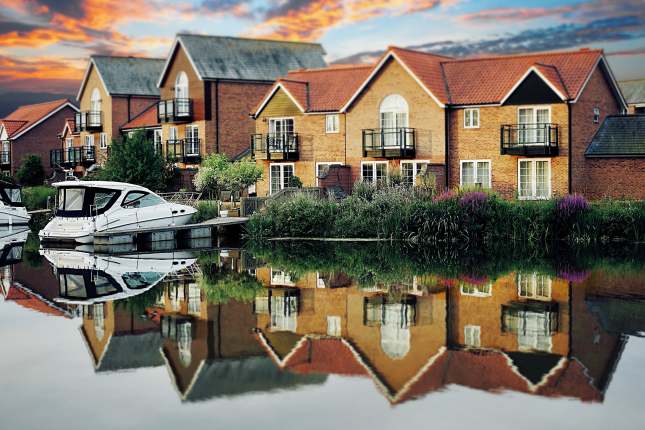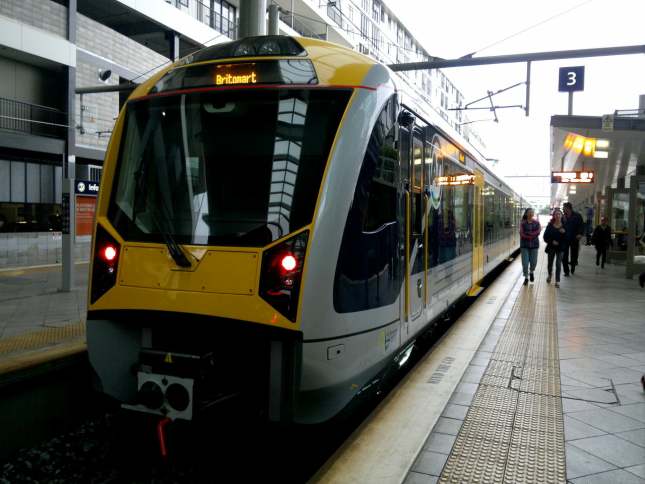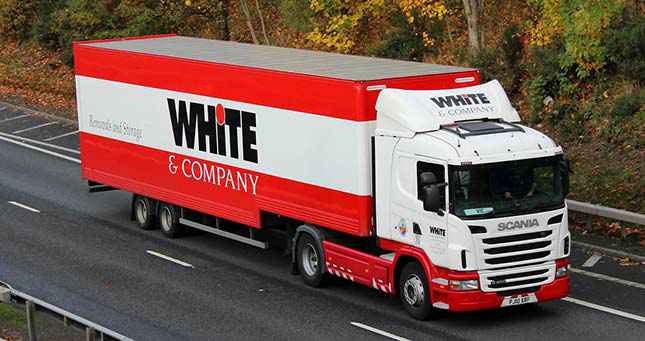Cost of Living in New Zealand vs UK

Are you looking to investigate the cost of living in New Zealand vs the UK?
Thousands of British ex-pats live in New Zealand, or as it is affectionately known “Land of the Long White Cloud”. It has been a favoured relocation destination for many years.
Many Britons choose to move to New Zealand for its high quality of life, stunning natural landscapes, outdoor lifestyle, and a more relaxed pace of living.
You might also be preparing for a new life there and are interested in the cost of living in New Zealand vs UK.
Knowing what to expect when you get there and how the cost of living might impact your budget and in turn your overall lifestyle is crucial.
As it can take some time to apply, be accepted and arrive in New Zealand, keeping abreast of the current economic conditions there is advisable as circumstances can change.
Here are some key points to consider when comparing the cost of living between New Zealand vs UK.
Salary Comparisons

Salaries in New Zealand and the UK are very similar. Image credit: Unsplash
Though plenty of people move to NZ to retire and be closer to family members, even more must continue to work.
Most people who arrive in NZ will have already secured a job.
If not, here are some salary comparisons for you to think about.
It is worth mentioning that the figures quoted in this article are approximate and are intended for use as a rough indicator rather than an absolute science.
Both countries pay pretty good salaries, but they will differ significantly depending on both location and industry.
Here is a list of typical salaries taking several familiar industries as examples.
According to the Cost-of-Living website Numbeo, in NZ, the average monthly salary after tax is NZD 4752 (£2288) versus £2316 (NZD 4809).
Very little difference here.
When it comes to individual sectors, here are some common areas of employment and their comparisons.
- Banking, finance, and insurance sectors NZD 106,000 (£51,000) vs UK £44,000, NZD 91,381.
- The education sector in New Zealand NZD 100,000 (£48,000) vs UK £41,000 (NZD 85,150)
- Software Developer in New Zealand NZD 120,000 (£58,000) vs UK £49,000 (NZD 101,000)
- Civil engineer in New Zealand NZD 93,000 (£45,000) vs UK £48,000 (NZD 100,000)
The conclusion is that there is not a huge amount of difference between New Zealand and the United Kingdom when it comes to annual salary comparisons.
If you want to investigate other sectors and industries not listed here, there are several very good online resources at your disposal:
For salaries in New Zealand try Trademe.
These sites list hundreds of employment opportunities and what you could potentially earn in New Zealand.
Comparing Income Tax
There is no getting away from paying your dues. Tax must be paid in New Zealand as it is in the UK.
Again, it is not easy to draw exact comparisons, however, this section will give you at least some information regarding the differences between the two systems.
The good news is that tax payments are relatively low in New Zealand.
New Zealand has progressive or gradual tax rates.
The rates increase as your income increases, the same as in the UK.
New Zealand Tax Rates
Up to NZD 14,000, you will pay 10.5%
Over NZD 14,000 up to NZD 48,000, you pay 17.5%
AboveNZD 48,000 up to NZD 70,000, you pay 30%
Over NZD 70,000 up to NZD 180,000, you pay 33%
For remaining income over NZD 180,000, you pay 38%
United Kingdom Tax Rates
Personal allowance earnings between £0 and £12,570: 0%
Basic rate £12,571 and £50,270: 20%
Higher rate £50,271 and £125,140: 40%
Additional rate over £125,140: 45%
It is clear that the higher your salary, the less tax you pay in New Zealand compared to the UK.
However, those on lower incomes will benefit from the UK’s tax-free allowance of £12,570.
Getting advice from a tax advisor who understands how payment of NZ tax is structured is a good idea.
You will then have peace of mind knowing that you are well-informed and ready to tackle the system before your arrival.
Alternatively, you can gain some insight into the way taxes are calculated by using a handy calculating tool online here.
For a full explanation of income tax rates and percentages for individuals visit the New Zealand Governments website.
Property Price Comparisons

Average house prices in the UK are far lower than in New Zealand. Image credit: Pexels
In major cities in both New Zealand and the UK, property prices are going to be higher, while more rural areas offer more affordable options.
The average cost of buying property across New Zealand is NZD 780,000 (£376,000).
As of November 2023, the average property price across the UK was £285,000 (NZD 591,000) much lower than NZ.
Taking averages into consideration, New Zealand is more expensive.
However, this is not a true reflection.
Auckland tops the list as the most expensive location, with an average home price of NZD 1,052,000 (£507,000).
Stats as per the latest data from OPES.
Whereas in the UK, London emerges as the most expensive location.
Homes in the capital have sold for an average of £787,000 (NZD 1,615,110) considerably higher than NZ’s most expensive city Auckland.
In Wellington, the average price for a home drops to NZD 750,000 (£379,000).
For the most budget-friendly options, the West Coast offers family-sized homes for as little as NZD 368,000 (£177,000).
Analysing these statistics indicates that it is generally more likely to find a home that costs less in New Zealand.
Moreover, it’s worth considering that homes in New Zealand are not only cheaper (outside cities), but tend to be larger as well, offering much more space.
Space is generally a premium in the UK.
Properties located outside of the city or a large town in New Zealand almost always sit on much larger plots, so you get far more outside space to enjoy your “Barbie”.
Compare Healthcare Cost & Provision
Both the UK and New Zealand have publicly funded healthcare systems that provide accessible and high-quality medical services to their citizens and permanent residents.
However, there are some key differences between healthcare in the UK and New Zealand.
Funding and Administration:
UK: The National Health Service (NHS) in the UK is a publicly funded healthcare system that is primarily funded through taxation.
It is managed by the UK government’s Department of Health and Social Care.
New Zealand: New Zealand’s healthcare system is also publicly funded and primarily financed through general taxation, managed by The Ministry of Health.
Access and Eligibility:
UK: The NHS provides healthcare services to all legal residents of the UK, regardless of their nationality or immigration status.
It offers a comprehensive range of services, including general practitioner visits, hospital care, and certain treatments.
New Zealand: In New Zealand, healthcare is available to all citizens and residents, as well as some work visa holders and certain other visa categories.
Eligible individuals are entitled to subsidised healthcare services, including primary care and hospital treatment.
Primary Care:
UK: Primary healthcare in the UK is usually provided by General Practitioners (GPs) who act as the first point of contact for most health issues.
Patients can choose and register with a GP of their choice.
New Zealand: Similarly, New Zealand’s primary healthcare services are also delivered by General Practitioners (GPs) who provide essential medical care to patients.
Prescription Charges:
UK: In England, prescription charges may apply for certain medications, although exemptions and reduced rates are available for certain groups such as children, the elderly, certain medical conditions, and those on benefits.
The cost of a UK prescription is £9.65.
New Zealand has a co-payment system for prescription medications, where patients contribute a portion of the medication cost, and the government subsidises the rest.
The cost of a prescription in NZ is substantially lower at NZD 5 (£2.41).
Private Healthcare:
In the UK, private healthcare is available for those who choose to purchase private health insurance or pay out-of-pocket for services.
Private healthcare facilities exist alongside the NHS.
Similarly, New Zealand has a private healthcare sector that provides additional options for those who prefer private medical services.
Many New Zealanders have a mix of public and private healthcare usage.
With each country, the cost of private health insurance varies depending on factors such as age, health, any ongoing health conditions, level of coverage, if you smoke, etc. etc.
If you want to find out more about how the healthcare system operates in New Zealand, you can do so by clicking HERE.
Transportation Cost Comparison

Public transport is slightly more expensive in New Zealand. Image credit: Wikipedia
Public Transport:
The UK boasts an extensive transport system covering vast areas of the country.
In contrast, New Zealand is generally less extensive compared to the UK, especially outside of major cities due to its size.
Larger cities like Auckland, Wellington, and Christchurch have bus and train services.
However, public transport coverage in rural areas may be more limited.
New Zealand’s primary modes of public transport are buses and trains.
Some regions also offer ferry services for inter-island travel, particularly between the North and South Islands.
You can budget NZD 3.50 (£1.65) for a one-way public transport ticket (local) versus the more expensive UK at £2.50 (NZD 5.18).
Monthly passes are available in both countries but, surprisingly, the UK wins out here at a cost of £68 (NZD 34) compared to NZD 200 (£95,54)
The UK pips New Zealand when it comes to public transport in several ways, including cost, services, and network coverage.
Driving:
Driving a car is a common mode of transportation in NZ.
Fortunately, car prices are quite reasonable, and you can find a decent used vehicle for anywhere between $5,000 to $10,000 (£2,413 – £4,827).
The overall cost of owning and maintaining a car in New Zealand varies based on factors like your driving habits and insurance coverage.
On average, you can expect to spend approximately NZD 3,000 to NZD 4,000 per year, (£1,460 – £1,950) which translates to about NZD 250 (£122) per month.
You will save on your car insurance as it is affordable in New Zealand compared to the UK, by as much as a third.
The cheapest insurance option can be as low as NZD 400 per year (£195), while the most expensive option hovers around NZD 800 (£389) annually.
However, the average cost to insure your vehicle for one year with fully comprehensive insurance is around NZD300 (£144).
Conversely, car owners in the UK face higher expenses, spending over NZD 6,109 (£2970) annually on car-related costs, equivalent to around NZD 508 (£247) per month.
In addition to insurance, UK drivers must also account for road tax, parking fees, and permits, which can add to the overall expenses.
Meanwhile, in New Zealand, you’ll benefit from many free parking spaces.
Moreover, the price of cars themselves is generally lower in New Zealand.
For instance, in New Zealand a second-hand Toyota Mark X is around £7,000-12,000, in the UK you would pay as much as £25,000.
Fuel is another consideration and savings can be made in New Zealand as fuel is around 13% cheaper there.
Overall, owning and driving a car in New Zealand offers a much more affordable option compared to the UK, both in terms of initial purchase costs and ongoing expenses.
Differences in the Cost of Groceries

Groceries tend to be cheaper in the UK. Image credit: Pixabay
Comparing the cost of food items is a little easier with the help of websites such as Numbeo and Expatistan.
They do the hard work for you. Not only do they compare food prices between the two countries, but they also offer other important cost comparisons too.
Here can give you a good idea of what you can expect to pay for your groceries in New Zealand and the UK:
- 1 litre of milk NZ $3.08 (£1.48p) – UK £1.04
- 500g loaf of white bread NZ $3.15 (£1.52) – UK £1.07
- Dozen medium-sized eggs NZ $8.39 (£4.04) – UK £2.50
- 1kg Potatoes NZ $3.73 (£1.80) – UK £1.10
- Mid-range bottle of wine NZ $16.00 (£7.72) – UK £7.50
- Cigarettes per pack of 20 NZ $38.00 (£18.33) – UK £13.00
- Meal for 2 People, Mid-range Restaurant NZ $120 (£59) – UK £60
These figures indicate that New Zealand food prices are in most cases, considerably higher than the UK.
In fact, it is going to cost you as much as 37% more overall.
That said, individual food costs will vary depending on personal preferences, dietary choices, and lifestyle.
Plus, there are budget stores in both countries which offer cheaper prices if you are prepared to shop around.
Energy Bill Consumption Cost Comparison

Energy Bills are typically far lower in New Zealand. Image credit: Pixabay
For the past five years, energy prices in the UK have consistently remained high mainly due to the continued fallout from the COVID lockdown and the conflict in Ukraine.
The UK relies on a diverse energy mix that includes a significant portion of natural gas, as well as renewable energy sources like wind and solar.
Natural gas prices can be subject to fluctuations in the international market, impacting energy costs in the UK.
In contrast, New Zealand generates a large portion of its electricity from renewable sources, such as hydroelectric and geothermal power, which can be relatively cost-effective.
We turn again to Numbeo for a direct cost comparison of energy bills.
Based on calculations for an 85m2 apartment, the monthly cost of Electricity, Heating, Cooling, Water, and Garbage disposal in New Zealand is going to be NZD245.46 (£118).
The cost in the UK for the same monthly services is double the price at £208.
Summing up the Differences
Comparing the cost of living between New Zealand and the UK involves considering many various factors.
These include culture, lifestyle, and individual circumstances.
It is not a straightforward task due to the significant differences between the two countries.
However, by examining the data available for comparing the two country’s cost of living, we can make a calculated judgement that living in New Zealand is going to cost you more.
That said, while there may be similarities in the overall cost of living.
This is particularly true concerning housing, food, and entertainment, the experience of living in each country can be unique and subjective.
Personal preferences, lifestyle goals, and individual circumstances will heavily influence the decision of choosing between the UK and New Zealand as a place to live.
Ultimately, each person’s priorities and values will play a crucial role in determining which country aligns better with their lifestyle and aspirations.
Without pointing out the obvious, moving to the other side of the globe is a life-changing decision and not to be taken lightly.
That is why it is essential to conduct thorough research.
Be sure to consider all relevant aspects of life in New Zealand before you make your final decision to move there.
How to get your Personal Effects to New Zealand

White & Company Truck
So, you have your visas in place, landed a new job and know about the cost of living in New Zealand vs the UK.
You are now ready to leap forward to your new life in the Land of the Long White Cloud.
The next step is to organise the shipment of your belongings to New Zealand!
It can take several weeks for everything to arrive so careful planning and organisation are required.
The first and one of the most crucial decisions, is hiring the services of an international removal company.
When it comes to handling the job, it’s best to call in the experts.
White & Company has established a solid reputation within the removal industry, known for providing a trustworthy and reasonably priced service.
As proud, long-standing members of BAR (British Association of Removers), Omni, and FIDI (Fédération Internationale des Déménageurs Internationaux), you can rest assured that our services are backed by the most influential organizations in the removal industry.
Don’t hesitate to reach out to us today for a free-of-charge, no-obligation home survey.
You can complete a quick quote form online, chat with our Bot, or simply give us a call.
No matter your preferred method of contact, we will respond promptly and work diligently to help you get closer to fulfilling your emigration dream.

Max is a seasoned writer and blogger in the real estate and home moving sectors, as well as a knowledgeable source of information for expatriates living and working abroad. His detailed insights have helped thousands of people move and live abroad with greater simplicity and ease.
Posted in: News
Leave a Comment (0) ↓


